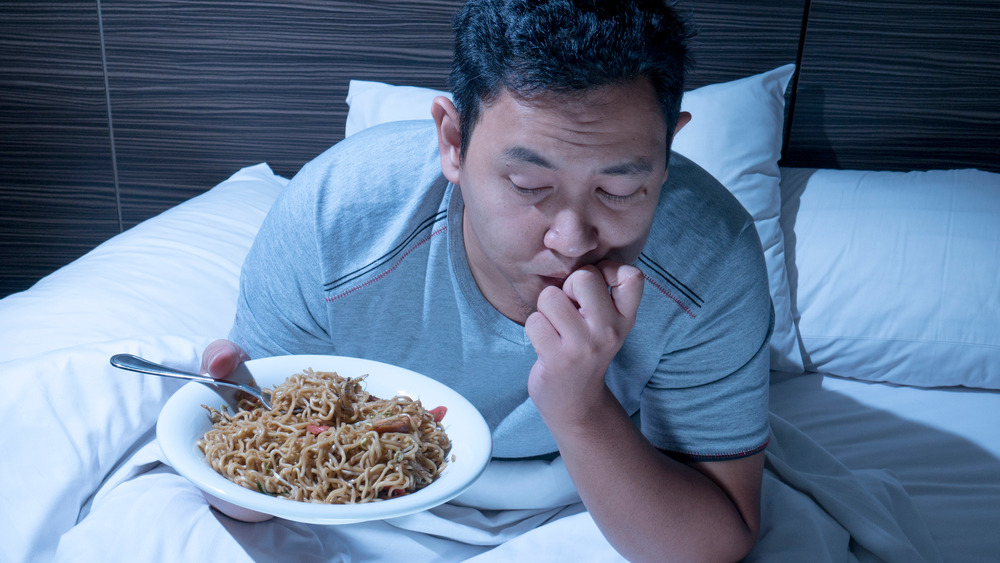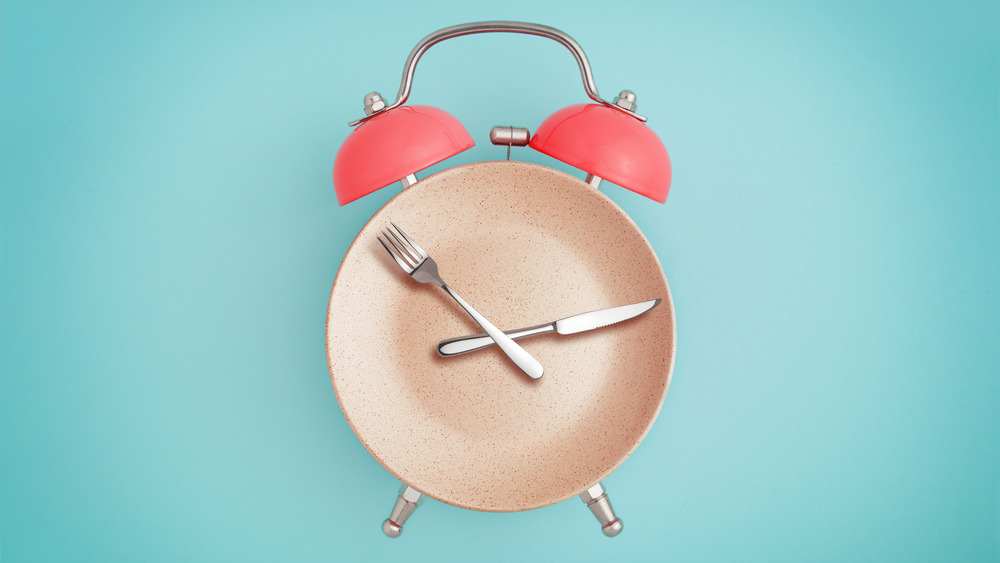The Late Night Diet Myth You Should Stop Believing
Like so many aspects of nutrition, there are conflicting recommendations about whether or not you should be snacking at night. Those who advise against it say that it leads to weight gain, because your body slows down its capacity to burn the calories consumed (via Discover). However, Discover notes that much of the research associated with these conclusions studied rodents and people working night shifts, a lifestyle which already compromises circadian rhythms.
On the other hand, those who support having a snack after dinner if you're hungry believe it can be a healthy habit that leads to weight maintenance (via Food Network). So can we dig into the tub of chocolate ice cream or should we be fasting as of 8 pm?
The answer largely depends on your overall nutrition and activity choices, according to the journal Nutrients. Research published in Nutrients suggests that unless the bulk of your calories are ingested at nighttime, a small nutrient-dense snack before bed can actually be a part of a healthy diet. Similarly, a study by the Journal of the American College of Nutrition demonstrated that participants who received a nightly bowl of cereal with low-fat milk had a greater reduction in total calories consumed compared with those who continued with their regular habits.
There's no one correct way to snack at night
Dr. Dasgupta, a specialist in sleep medicine, explains to Self that having a regular routine at nighttime (with or without food) sends a message to your body that it is time to wind down. He points out that there's no use in lying awake hungry if a snack can be a quick fix to fall asleep. Conversely, if you are having issues with acid reflux and nighttime digestion, Dr. Dasgupta notes it may be a good idea to reconsider eating close to bedtime.
According to a study in Physiology & Behavior, additional research is required to understand the possible effects of the timing of food ingestion on circadian rhythms and metabolism. Physician Jonathan Jun tells Discover that a one-size-fits all approach to the timing of food consumption is unlikely. Consider the variability in food habits among the people you know! You might feel satiated with an apple and a cup of tea at night while your partner might indulge in a pack of chips and three chocolate bars.
Ultimately, if you feel satiated with your daily food consumption and aren't gaining weight, then continue with your routine. Just because something works for rodents, it doesn't mean you have to fundamentally change what works for you! Likewise, if you notice you're always hungry during the day and eat a bunch of junk food at night, it could be a sign to reassess your habits and find something more sustainable.

